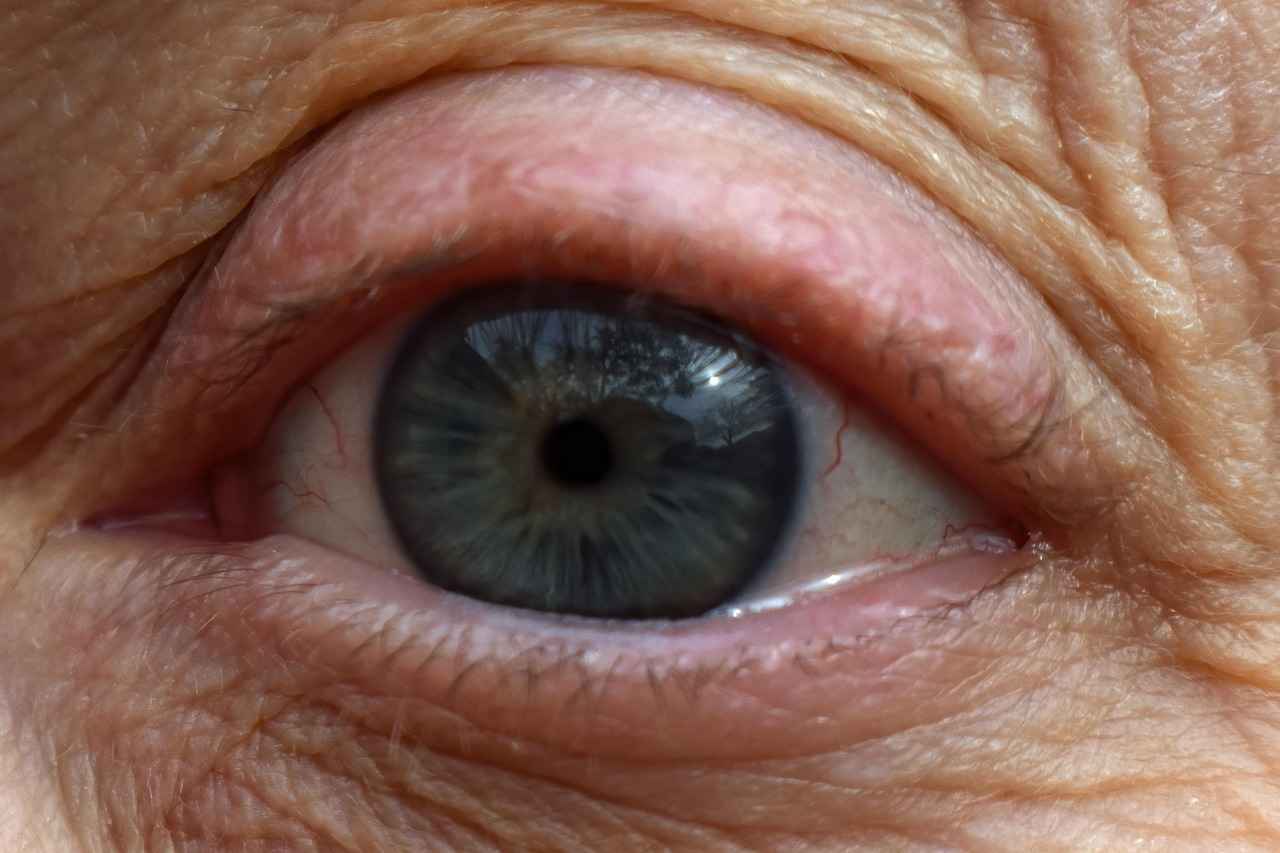This article delves into the numerous benefits of astaxanthin capsules for eye health, elaborating on their mechanisms, natural sources, and how they contribute to overall vision wellness. As a potent carotenoid, astaxanthin is increasingly recognized for its significant role in promoting eye health.
What is Astaxanthin?
Astaxanthin is a powerful antioxidant found in various marine organisms, including salmon, shrimp, and certain algae. Its vibrant red color is a hallmark of its presence in nature, and it is gaining popularity due to its potential health benefits, particularly for eye health.
How Does Astaxanthin Benefit Eye Health?
Astaxanthin supports eye health by effectively reducing oxidative stress and inflammation. These properties are essential in protecting against age-related macular degeneration (AMD) and other vision-related issues. By neutralizing harmful free radicals, astaxanthin helps maintain the integrity of eye tissues.
The Role of Antioxidants in Eye Health
Antioxidants like astaxanthin play a crucial role in safeguarding the eyes from oxidative damage. This protection is vital for preventing degenerative diseases and ensuring long-term vision health.
Oxidative Stress and Its Impact on Vision
Oxidative stress can lead to significant cellular damage in the eyes, contributing to conditions such as cataracts and AMD. Astaxanthin mitigates these effects through its robust antioxidant capabilities.
The Importance of Reducing Inflammation
Chronic inflammation is often linked to various eye disorders. The anti-inflammatory properties of astaxanthin may help reduce the risk of developing these conditions, thereby promoting better overall eye health.
Sources of Astaxanthin
Astaxanthin is naturally present in several foods, especially in seafood and certain algae. Incorporating these sources into your diet can help you reap the benefits of this vital nutrient.
How to Incorporate Astaxanthin into Your Diet
Integrating astaxanthin into your daily routine can be achieved through supplements or by consuming natural food sources. Here are some practical tips:
- Consider taking astaxanthin supplements for concentrated doses.
- Include salmon, trout, and shrimp in your meals.
- Explore algae-based products for a plant-based source of astaxanthin.
Recommended Dosages of Astaxanthin
Determining the right dosage of astaxanthin is essential for maximizing its benefits. Research suggests a typical dosage ranging from 4 to 12 mg per day, but it’s advisable to consult a healthcare professional for personalized recommendations.
Potential Side Effects and Considerations
While astaxanthin is generally safe, some individuals may experience mild side effects, such as stomach upset or skin discoloration. It’s important to consider these factors before starting supplementation.
Conclusion: The Future of Eye Health with Astaxanthin
Astaxanthin capsules represent a promising option for supporting eye health. As research continues to uncover their benefits, these capsules may play a critical role in preventive eye care and overall vision wellness.

What is Astaxanthin?
Astaxanthin is a remarkable carotenoid that has garnered significant attention due to its potent antioxidant properties. This natural pigment is predominantly found in a variety of organisms, including certain types of algae, salmon, and shrimp, giving them their characteristic pink and red hues. As research continues to unfold, astaxanthin is being recognized not only for its vibrant color but also for its potential health benefits, particularly in relation to eye health.
The significance of astaxanthin lies in its ability to combat oxidative stress. Oxidative stress occurs when there is an imbalance between free radicals and antioxidants in the body, leading to cellular damage. This condition is particularly concerning for eye health, as it can contribute to various degenerative diseases such as age-related macular degeneration (AMD) and cataracts. Astaxanthin’s strong antioxidant capabilities help neutralize these harmful free radicals, thereby protecting the delicate structures of the eye.
Moreover, astaxanthin also possesses anti-inflammatory properties. Chronic inflammation is a key factor in many eye disorders, and by reducing inflammation, astaxanthin may help lower the risk of developing these conditions. Studies suggest that regular intake of astaxanthin can lead to improved visual acuity and overall eye function, making it a valuable addition to one’s diet.
Incorporating astaxanthin into your daily routine can be achieved through dietary sources or supplements. Foods rich in astaxanthin, such as wild-caught salmon, krill oil, and certain algae, can provide a natural boost. For those who may find it challenging to consume these foods regularly, astaxanthin capsules are widely available and can serve as a convenient alternative.
In conclusion, astaxanthin emerges as a powerful ally for maintaining eye health. Its dual action as an antioxidant and anti-inflammatory agent makes it a promising candidate for preventing age-related vision issues. As ongoing research continues to explore its full potential, astaxanthin capsules could play a pivotal role in enhancing visual wellness and overall health.

How Does Astaxanthin Benefit Eye Health?
Astaxanthin, a potent carotenoid, is increasingly recognized for its significant role in promoting eye health. This natural pigment, primarily sourced from microalgae and seafood, offers a multitude of benefits that contribute to maintaining optimal vision.
One of the primary mechanisms by which astaxanthin supports eye health is through its ability to reduce oxidative stress. The eyes are particularly vulnerable to oxidative damage due to their high metabolic activity and exposure to light. Astaxanthin acts as a powerful antioxidant, neutralizing harmful free radicals that can damage retinal cells. This protective effect is crucial in preventing conditions such as age-related macular degeneration (AMD), a leading cause of vision loss in older adults.
Moreover, astaxanthin possesses strong anti-inflammatory properties. Chronic inflammation in the eye can lead to various disorders, including diabetic retinopathy and uveitis. By mitigating inflammation, astaxanthin helps to preserve eye function and reduce the risk of developing these serious conditions. Research indicates that regular intake of astaxanthin may lead to improved visual acuity and overall eye comfort.
Additionally, astaxanthin is known to enhance blood flow to the eyes, ensuring that essential nutrients reach the ocular tissues. This improved circulation can further aid in maintaining healthy vision and preventing degenerative changes associated with aging.
In conclusion, astaxanthin serves as a vital ally in supporting eye health through its antioxidant and anti-inflammatory effects. By incorporating this powerful carotenoid into your diet, whether through supplements or natural food sources, you can take proactive steps to protect your vision and promote long-term eye wellness.
The Role of Antioxidants in Eye Health
Antioxidants are vital components in maintaining overall health, particularly when it comes to eye health. Among these, astaxanthin stands out as a potent antioxidant that plays an essential role in protecting the eyes from oxidative stress and damage caused by free radicals.
Free radicals are unstable molecules that can cause cellular damage, leading to various degenerative diseases, including those affecting the eyes. By neutralizing these harmful compounds, antioxidants like astaxanthin help to preserve the integrity of eye tissues. This is particularly important as we age, as the risk of developing conditions such as age-related macular degeneration and cataracts increases.
Astaxanthin’s unique molecular structure enables it to cross the blood-retinal barrier, providing direct protection to the retina. This capability is crucial because the retina is highly susceptible to oxidative damage due to its high metabolic activity and exposure to light. Research indicates that astaxanthin can significantly reduce oxidative stress in the eyes, which is essential for maintaining clear vision and preventing degenerative diseases.
Furthermore, astaxanthin also exhibits anti-inflammatory properties. Chronic inflammation is another contributing factor to various eye disorders, including diabetic retinopathy and uveitis. By reducing inflammation, astaxanthin not only protects the eyes but also supports overall eye health, promoting better vision and reducing the risk of developing serious eye conditions.
In conclusion, the role of antioxidants, particularly astaxanthin, in eye health cannot be overstated. By neutralizing free radicals and reducing inflammation, astaxanthin helps to protect the delicate structures of the eye, ensuring optimal vision and reducing the risk of degenerative diseases. Incorporating astaxanthin through diet or supplements can be a proactive step towards maintaining eye health as we age.
Oxidative Stress and Its Impact on Vision
Oxidative stress is a significant factor that can adversely affect our vision. It occurs when there is an imbalance between free radicals and antioxidants in the body. This imbalance can lead to cellular damage in various tissues, including those in the eyes. Over time, oxidative stress is linked to several eye conditions, such as cataracts and age-related macular degeneration (AMD).
Research indicates that the eyes are particularly vulnerable to oxidative stress due to their high metabolic activity and exposure to light. The lens and retina are especially affected, leading to the development of cataracts, where the lens becomes cloudy, impairing vision. Similarly, AMD results from the deterioration of the retina, which can severely impact central vision.
Fortunately, astaxanthin emerges as a powerful ally in combating oxidative stress in the eyes. This carotenoid, found in certain algae and seafood, exhibits potent antioxidant properties that help neutralize free radicals. By doing so, astaxanthin can protect the delicate structures of the eyes from oxidative damage.
Moreover, astaxanthin not only combats oxidative stress but also reduces inflammation, which is another contributing factor to various eye disorders. Chronic inflammation can exacerbate conditions like AMD and diabetic retinopathy, making it essential to incorporate anti-inflammatory nutrients into our diets.
In summary, oxidative stress poses a significant risk to eye health, leading to conditions such as cataracts and macular degeneration. However, astaxanthin’s antioxidant and anti-inflammatory properties offer a promising solution to mitigate these effects and support overall vision wellness.
The Importance of Reducing Inflammation
is a critical aspect of maintaining optimal eye health. Chronic inflammation in the body can lead to a variety of eye disorders, including age-related macular degeneration, cataracts, and diabetic retinopathy. These conditions not only affect vision but can also lead to more severe health issues if left untreated.
Astaxanthin, a potent carotenoid found in certain algae and seafood, has gained attention for its remarkable anti-inflammatory properties. By incorporating astaxanthin into your diet, you may significantly reduce the risk of developing these detrimental eye conditions. This is particularly important as we age, as the risk of chronic inflammation increases.
Research indicates that astaxanthin works by inhibiting inflammatory markers in the body. It does this by neutralizing free radicals and reducing oxidative stress, which is often a precursor to inflammation. The eye, being a sensitive organ, is particularly vulnerable to these stressors. Therefore, the protective effects of astaxanthin can be vital in preserving vision and overall eye health.
- Age-Related Macular Degeneration (AMD): A leading cause of vision loss, AMD is linked to chronic inflammation in the retina. Astaxanthin may help mitigate this risk.
- Cataracts: Inflammation can contribute to the clouding of the lens in the eye. Astaxanthin’s anti-inflammatory effects can potentially delay the onset of cataracts.
- Diabetic Retinopathy: This condition arises from prolonged inflammation and damage to the blood vessels in the retina. Astaxanthin may offer protective benefits.
In conclusion, reducing inflammation is essential for maintaining eye health, and astaxanthin is a promising natural solution. By incorporating this powerful antioxidant into your daily routine, you can help protect your eyes from inflammation-related disorders, leading to better vision and overall health.
Sources of Astaxanthin
Astaxanthin is a remarkable carotenoid that offers numerous health benefits, particularly for eye health. Found predominantly in certain seafood and algae, this powerful antioxidant is gaining recognition for its potential to enhance vision wellness. Understanding the various sources of astaxanthin can help individuals effectively incorporate this nutrient into their diets.
Astaxanthin is primarily sourced from a variety of marine organisms. The most notable sources include:
| Source | Astaxanthin Content |
|---|---|
| Salmon | High |
| Trout | Moderate |
| Shrimp | High |
| Lobster | High |
| Crab | Moderate |
| Microalgae | Very High |
In addition to seafood, microalgae such as Haematococcus pluvialis are among the richest sources of astaxanthin. This microalga is often harvested for supplements and is a key ingredient in various health products. Incorporating these foods into your diet can be an excellent way to boost your astaxanthin intake.
For those who do not consume seafood or prefer plant-based options, astaxanthin supplements are widely available. These supplements can provide a concentrated dose of astaxanthin, making it easier to achieve the desired intake.
In summary, understanding the sources of astaxanthin is essential for anyone looking to improve their eye health. By including astaxanthin-rich foods in your diet or opting for supplements, you can harness the benefits of this powerful antioxidant and support your overall vision wellness.

How to Incorporate Astaxanthin into Your Diet
Incorporating astaxanthin into your diet is a straightforward process that can significantly enhance your overall health, particularly your eye health. Astaxanthin, a potent antioxidant, can be obtained through various means, ensuring that you can easily integrate it into your daily routine.
Here are some effective ways to achieve optimal intake:
- Supplements: One of the easiest ways to increase your astaxanthin intake is through high-quality supplements. Available in various forms, including soft gels and capsules, these supplements provide a concentrated dose of this powerful carotenoid. It is advisable to follow the recommended dosage on the packaging or consult a healthcare professional for personalized advice.
- Natural Food Sources: Incorporating astaxanthin-rich foods into your diet is another excellent approach. Some of the best sources include:
- Salmon: Wild-caught salmon is one of the richest sources of astaxanthin, making it an excellent addition to your meals.
- Krill: Krill oil is another potent source of astaxanthin and can be consumed in supplement form or as part of a balanced diet.
- Algae: Certain types of microalgae, such as Haematococcus pluvialis, are known for their high astaxanthin content. Algae supplements are available for those who prefer plant-based options.
- Shrimp and Lobster: These seafood options also contain astaxanthin, adding variety to your diet.
- Cooking Methods: When preparing astaxanthin-rich foods, consider cooking methods that preserve their nutrient content. Steaming or grilling fish, for example, can help maintain the integrity of astaxanthin.
In conclusion, whether through supplements or natural food sources, incorporating astaxanthin into your diet is an effective way to harness its numerous health benefits. By following these practical tips, you can ensure you are getting the optimal intake of this valuable antioxidant.
Recommended Dosages of Astaxanthin
Determining the right dosage of astaxanthin is essential for maximizing its benefits. This powerful carotenoid has gained popularity due to its potential health advantages, particularly in supporting eye health. However, understanding the appropriate dosage can be challenging, given the variety of products available and individual health needs.
Research suggests that typical dosages of astaxanthin range from 4 mg to 12 mg per day. A dosage of 6 mg is often recommended for general health benefits, while higher doses may be beneficial for specific conditions, such as eye health or athletic performance. It is crucial to consider factors such as age, health status, and specific health goals when determining the appropriate dosage.
| Condition | Recommended Dosage |
|---|---|
| General Health | 4 mg – 6 mg daily |
| Eye Health | 6 mg – 12 mg daily |
| Athletic Performance | 12 mg daily |
It’s important to note that while astaxanthin is generally considered safe, it is advisable to consult with a healthcare professional before starting any new supplement regimen. This is especially important for individuals who are pregnant, nursing, or taking medications.
Additionally, the method of consumption can influence the effectiveness of astaxanthin. Taking it with a meal that contains fats can enhance its absorption, leading to better results. Therefore, integrating astaxanthin into a balanced diet alongside healthy fats can optimize its benefits.
In conclusion, the right dosage of astaxanthin can vary based on individual needs and health objectives. By following expert guidelines and considering personal health factors, individuals can harness the full potential of this remarkable antioxidant.
Potential Side Effects and Considerations
While astaxanthin is generally regarded as safe for most individuals, it is crucial to be aware of potential side effects and important considerations before beginning supplementation. Understanding these factors can help ensure a safe and beneficial experience.
- Gastrointestinal Issues: Some users may experience mild digestive discomfort, such as nausea, diarrhea, or stomach cramps. These symptoms are usually temporary and may diminish over time.
- Allergic Reactions: Although rare, some individuals may have an allergic reaction to astaxanthin. Symptoms can include itching, rashes, or more severe reactions. It is advisable to consult a healthcare professional if any allergic symptoms occur.
- Interactions with Medications: Astaxanthin may interact with certain medications, particularly those that affect blood clotting. Individuals taking anticoagulants or other blood-thinning medications should consult their healthcare provider before starting astaxanthin supplements.
- Pregnancy and Breastfeeding: There is limited research on the effects of astaxanthin during pregnancy and breastfeeding. Therefore, it is recommended that pregnant or nursing women avoid supplementation unless advised by a healthcare professional.
- Pre-existing Conditions: Individuals with specific health conditions, particularly those related to the liver or kidneys, should exercise caution and seek medical advice prior to using astaxanthin.
In summary, while astaxanthin offers numerous health benefits, it is essential to approach supplementation with care. Consulting with a healthcare provider can help mitigate potential risks and ensure that astaxanthin is a suitable addition to your health regimen.

Conclusion: The Future of Eye Health with Astaxanthin
Astaxanthin capsules are emerging as a promising option for those seeking to enhance their eye health. As a potent carotenoid, astaxanthin is recognized for its remarkable antioxidant properties, which play a critical role in safeguarding vision. Ongoing research continues to uncover the myriad benefits of this nutrient, confirming its significance in preventive eye care.
One of the primary ways astaxanthin supports eye health is through its ability to combat oxidative stress. This stress, caused by free radicals, can lead to serious eye conditions such as age-related macular degeneration (AMD) and cataracts. By neutralizing these harmful agents, astaxanthin helps maintain the integrity of eye tissues, thus promoting better vision.
In addition to its antioxidant effects, astaxanthin also exhibits strong anti-inflammatory properties. Chronic inflammation is a contributing factor to various eye disorders, and reducing this inflammation can significantly lower the risk of developing such conditions. As research progresses, the potential of astaxanthin to serve as a natural remedy for eye health becomes increasingly apparent.
Furthermore, astaxanthin can be sourced from a variety of foods, particularly from seafood and certain types of algae. This makes it relatively easy for individuals to incorporate into their diets, either through natural sources or supplements. Understanding the appropriate dosage is vital to maximizing its benefits, and consulting with a healthcare professional is recommended.
As we look to the future, the role of astaxanthin in eye health is likely to expand. Continued studies will not only shed light on its benefits but also solidify its position as a key player in vision wellness. With its natural origins and impressive health benefits, astaxanthin capsules represent a valuable addition to any preventive eye care regimen.














